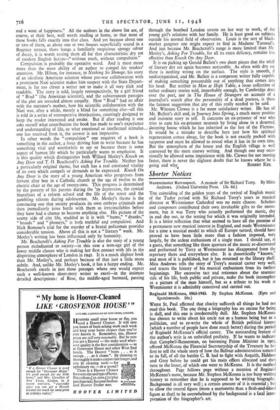WHEN St. Paul affirmed that charity suffereth all things he
had not read this book. The one thing a biography has no excuse for being is dull; and this one is irredeemably dull. Mr. Stephen McKenna has chosen to write about his uncle not as a human being but as a politician, and to re-write the whole of British political history (which a number of people have done much better) during the period of Reginald McKenna's' official career. The outstanding feature of the author's style is an unbridled prolixity. If he wants to indicate that Campbell-Bannerman, on becoming Prime Minister in 19o5,. offered McKenna the Financial Secretaryship of the Treasury he has first to tell the whole story of how the Balfour administration tottered to its fall, of all the battles C. B. had to fight with Asquith, Haldane and Grey before he could get his main offices allocated and then turn to the lesser, of which one went to McKenna. It is the method throughout. Page follows page without a mention of Reginald McKenna's name, because Mr. Stephen McKenna is too busy writing history to remember that he is supposed to be writing biography. Background is all very well ; a certain amount of it is essential ; but to allow the central figure (more a marionette than a flesh-and-blood figure at that) to be overwhelmed by the background is a fatal inter- pretation of the biographer's art.






























 Previous page
Previous page